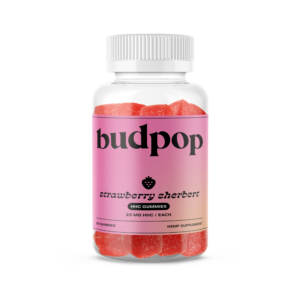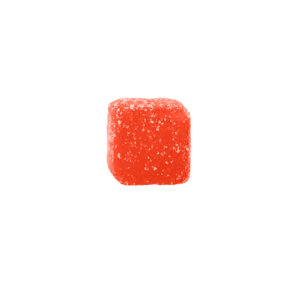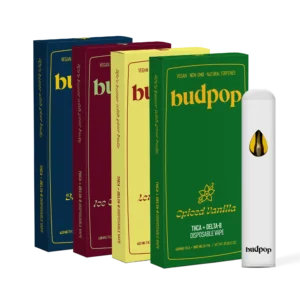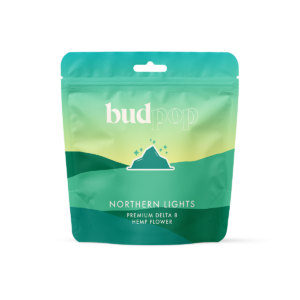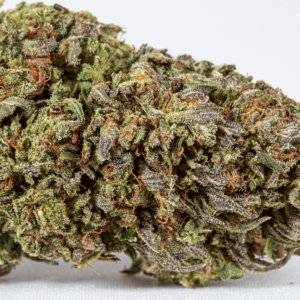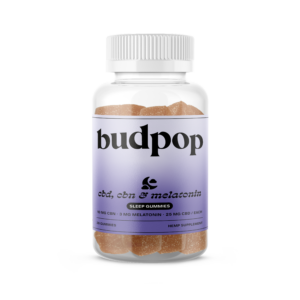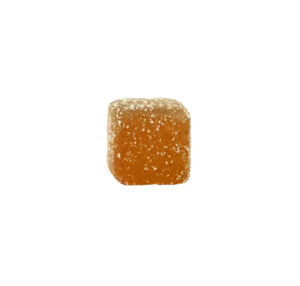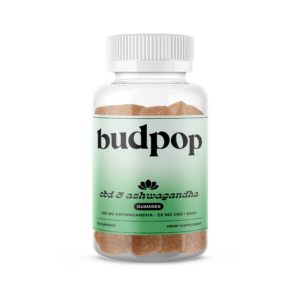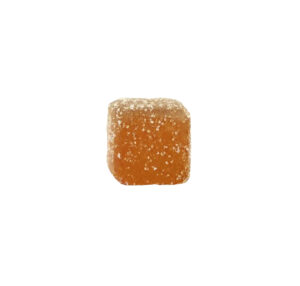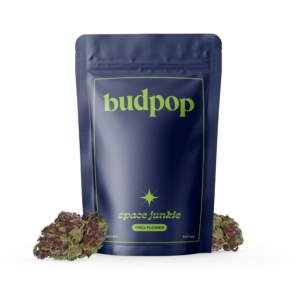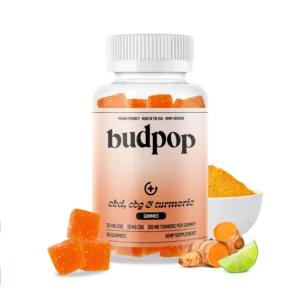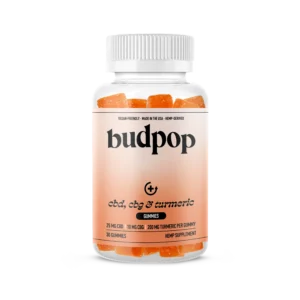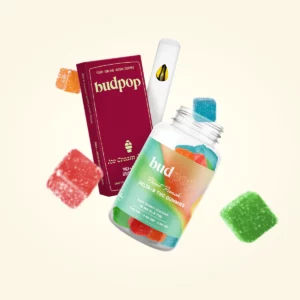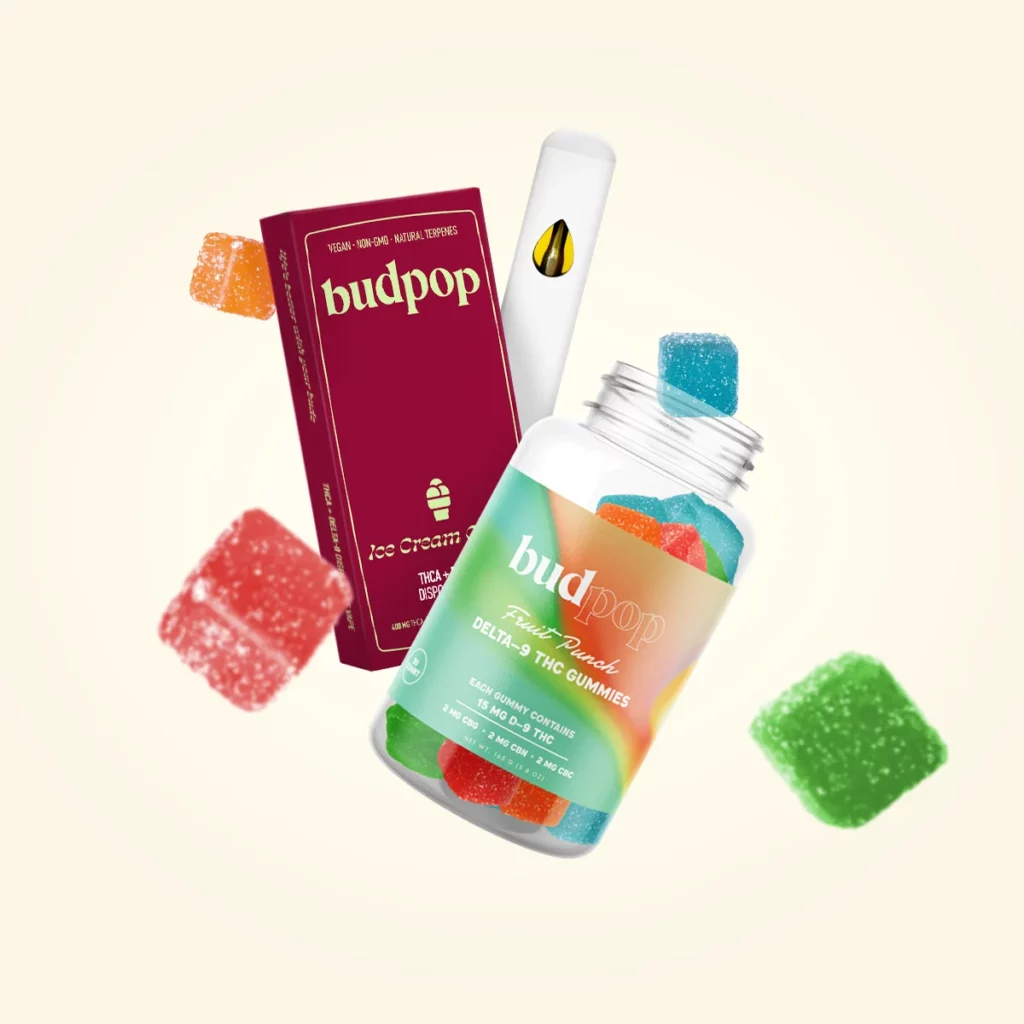![HHC vs THC [Discover 4 Unique Benefits of Each Cannabinoid!] hhc vs thc](https://budpop.com/wp-content/uploads/2024/08/hhc-vs-thc.jpg)
HHC vs THC [Discover 4 Unique Benefits of Each Cannabinoid!]
The world of cannabinoids is vast. Many compounds offer unique effects, potential health benefits, and legal considerations. Among the most talked-about cannabinoids are HHC and THC. Both compounds originate from the cannabis plant but have distinct characteristics that set them apart. So, what’s the difference between HHC vs THC? We’ll break it down for you.
In this article, we will explore HHC vs THC and reveal their differences. We’ll examine their chemical structure, potential benefits, potency, products, and legality. By the end, you’ll have a clear understanding of the key differences in how these cannabinoids interact with your body’s endocannabinoid system and how to choose between them. Keep reading to discover the differences between these two cannabinoids.
What Is HHC?
HHC, or Hexahydrocannabinol, is a hydrogenated chemical structure form of THC. While HHC naturally occurs in small amounts in a cannabis plant, most of the HHC on the market is semi-synthetically derived from converting CBD (Cannabidiol) from hemp plants. This gives connoisseurs a legal alternative to THC in some states where marijuana is still off-limits.
HHC might be new to you, but it’s been around since the 1940s when chemist Roger Adams first synthesized it from THC. However, it stayed under the radar until recently. With growing interest in alternative cannabinoids, HHC has seen a surge in popularity in recent years. Its meteoric rise is particularly due to it offering a mellower THC experience.
On a molecular structure level, the key difference between HHC and THC is that HHC has extra hydrogen atoms. This small change in its chemical structure gives it a bit more stability than THC. The different structure also results in slightly less intense euphoria. The key phrase is “slightly less.”
Consumers often report that HHC provides a smoother, more clear-headed fade without the overwhelming euphoric effects associated with THC. HHC has become the go-to cannabinoid for those looking to destroy stress or in need of a quick mental pick-me-up.
What Is THC?
Tetrahydrocannabinol (THC, Delta 9 THC, Delta 9, D9 THC, or D9) is the main euphoric compound in cannabis plants. It’s responsible for the “fade” people feel. THC occurs naturally in hemp plants, albeit in very small amounts (0.3% or less). However, it’s the main cannabinoid in marijuana. Some marijuana strains possess THC concentrations over 25%.
Unlike other cannabinoids, THC binds directly to the body’s cannabinoid receptors, causing a range of effects from euphoria to differing sensory experiences. The THC molecule contains a double bond on its ninth carbon. This makes it more effective at binding to the CB1 receptors in the brain, leading to more pronounced euphoric effects compared to HHC. While both cannabinoid compounds can produce euphoria, THC is known for delivering a stronger, more euphoric experience. But be careful; consuming too much THC can lead to some potent psychoactive effects.
THC has a long history. The compound’s use dates back thousands of years when people used cannabis both medicinally and recreationally. It wasn’t until the 1960s that Professor Raphael Mechoulam isolated THC as the main euphoric component of cannabis. Mechoulam’s research on the chemical composition of THC and its effects paved the way for modern ongoing research on cannabis.
Since then, THC has become the world’s most popular cannabinoid. Many consume it recreationally. In recent years, the medicinal use of THC through medical marijuana has also become more prevalent, especially in the US. While some stigma around THC persists, its acceptance has grown significantly. This is especially true of its therapeutic potential. With proper education and continued research into its properties, the understanding of THC continues to evolve.
Understanding the Benefits of HHC
HHC offers a range of effects that appeal to those who want a more balanced experience. While it doesn’t pack the same intense punch as THC, its unique benefits are worth noting. Here’s what HHC has to offer you.
Euphoria
HHC provides a subtle, uplifting euphoria that can brighten your mood without overwhelming effects. It’s perfect for consumers who want to feel more upbeat but don’t want to feel “too faded.” Think of it as the happy medium between a light buzz and full-on THC-induced euphoria. Many connoisseurs find this effect more manageable in social settings or during daytime activities.
More Energy and a Sharper Mind
One of the standout benefits of HHC is how it affects energy and focus. Unlike THC, which can sometimes leave you feeling sluggish or spaced out, HHC tends to have a more energizing effect. It’s ideal for when you need a mental boost to power through tasks or creative projects without feeling drowsy. This makes it a popular choice for people seeking a daytime cannabinoid that won’t interfere with productivity.
However, don’t overdo it! Like all euphoric cannabinoids, taking too much will cause you to become couch-locked, which is the opposite of HHC’s “up and at ’em” effects.
Promoting Relaxation
Whether you’re dealing with a hectic day or just need to wind down after work, HHC offers a gentle way to take the edge off. Though it provides energy and mental clarity, HHC is ideal for relaxation. Its balanced effects can help ease stress and tension. This makes HHC a great option for those looking to unwind without being overly drowsy.
Supporting Sleep
While HHC’s effects are less intense than THC, it still offers notable sleep-supporting benefits. Some consumers report that it helps them fall asleep faster and enjoy a more restful night’s sleep. The mild euphoria combined with its relaxing properties makes it easier to drift off without the grogginess that some other cannabinoids may cause the next morning. This balance is especially appreciated by people who want to improve sleep quality without the stronger drowsiness effects that can come with THC.
Understanding the Benefits of THC
THC is well-known for its potent euphoric effects. But beyond that, it also has potential therapeutic benefits that make it popular among medical cannabis connoisseurs. Here are some of the key benefits THC offers.
Increasing Sleep Quality
One of the most common reasons people turn to THC is its ability to help with sleep. Its drowsy effects help you not only fall asleep but stay asleep. Whether you’re struggling with sleeping or just need help winding down after a stressful day, THC can promote periods of rest. The powerful relaxation it provides is particularly useful for those who are restless at night.
Chronic Physical Discomfort Management
THC is celebrated for its discomfort-relieving properties. It’s frequently used by those dealing with chronic physical discomfort condition. THC can significantly reduce soreness levels, making daily activities more bearable. By interacting with the body’s endocannabinoid system, THC helps regulate soreness perception, providing relief that lasts for several hours.
Decreasing Feelings of Anxiousness, Low Mood, and Trouble Sleeping
While THC is best known for its recreational use, it also has notable effects on your mental health journey. In moderate doses, THC can reduce feelings of anxiousness and low mood. By doing so, it helps elevate overall mood and mental well-being. As we previously mentioned, THC is great for helping you get to sleep. Proper rest can ensure you’re functioning at your best and feeling lethargic.
That said, dosing is key. Too much THC can sometimes increase anxious thoughts in certain individuals. This extreme psychoactive potency can be too much for many people to handle. That’s why it’s so it’s important to start small and find a THC dosage that works best for you.
Stomach and Appetite Issues
THC has long been used to help those dealing with severe gastrointestinal issues. Scientists have examined its effectiveness in calming the stomach and reducing the urge to vomit.
Many people also turn to THC for appetite stimulation. The “munchies” are a phenomenon that occurs when you consume THC. The cannabinoid increases ghrelin production, which elevates the urge to eat and makes food more pleasing. Many who aren’t getting adequate nutrition due to a hectic lifestyle or illness may benefit from these properties. Taken together, THC is invaluable for patients who suffer from conditions that make them prone to upset stomach or loss of appetite.
HHC vs THC: Which Is Naturally Occurring?
Both HHC and THC are naturally occurring cannabinoids. However, they are found in cannabis plants in very different quantities. THC is abundantly present in marijuana, which is why it’s the cannabinoid most people associate with getting faded.
In fact, THC is one of the primary compounds that give cannabis its famous euphoric effects. You’ll find high levels of THC in marijuana plants. This is especially true in strains bred for recreational use. It’s also present in hemp in concentrations of 0.3 % or less.
HHC, on the other hand, occurs in much smaller amounts in the cannabis plant. It’s present as a byproduct when THC breaks down over time. But the amount found naturally is minimal. Because of its scarcity, most HHC available on the market is synthesized from hemp-derived CBD via a multi-step conversion process. This semi-synthetic nature of HHC doesn’t make it any less effective. Still, it does set it apart from THC, which can be extracted directly from marijuana plants and semi-synthetically produced via a similar multi-step conversion process of CBD.
HHC vs THC: Which Is More Potent?
When it comes to potency, THC comes out on top. THC has been well-documented for its strong euphoric effects. For many consumers, it produces an intense euphoria. This is largely because THC binds more effectively to the CB1 receptors in the brain, leading to more pronounced euphoric effects. These include a heady sensory experience, mood elevation, and sometimes even a sense of altered time or reality.
HHC, by comparison, is milder. Many connoisseurs describe its effects as less intense and more manageable than THC. This is appealing if you’re looking for a cannabinoid that offers a softer, more subtle experience. HHC’s effects are sometimes described as falling somewhere between Delta-8 THC and Delta-9 THC. You’ll enjoy a good buzz but without the overwhelming intensity that can sometimes accompany high doses of THC.
For those who are sensitive to THC’s more potent effects, HHC may provide a more comfortable middle ground. This will allow you to enjoy the therapeutic benefits without being overly affected by the euphoric aspects.
HHC vs THC: Product Differentiation
When it comes to product availability, both HHC and THC products are available in a wide variety of forms. However, their uses and effects can differ significantly depending on the product type. Here is a breakdown of how THC products and HHC products stack up.
THC Products
THC is available in an extensive range of cannabis products, from traditional marijuana flower to hemp-derived products such as edibles, oils, tinctures, capsules, and vapes. Its versatility makes it a popular choice for both recreational and medicinal consumers.
THC-rich products, such as THC gummies, are often aimed at those seeking a strong euphoric experience, whether for recreational enjoyment or therapeutic relief, such as managing physical discomfort, anxious thoughts, or trouble sleeping. Because THC is well-known for producing a fade, it’s commonly included in cannabis products designed for relaxation or euphoria.
HHC Products
HHC, on the other hand, has recently become more popular, especially in states where THC remains illegal. Since HHC is derived from hemp, it falls under the 2018 Farm Bill, making it legal in more places than THC. The 2018 Farm Bill legalized hemp and hemp-derived products as long as they do not exceed 0.3% THC. Like THC, you can find HHC products in a variety of forms, such as vapes, edibles (like gummies), and tinctures, most of which are hemp-derived and
These HHC products are typically marketed to people who want a milder euphoria, legal alternatives to THC, or those curious about hemp-derived cannabinoids without the intense effects of THC. HHC gummies, in particular, have become popular for their easy-to-dose format and subtle, mood-enhancing effects.
In terms of product key differences, THC is the cannabinoid of choice for those seeking a stronger experience, while HHC appeals to consumers looking for a legal, less intense option. If you’re in a state where THC is not yet legal, hemp-derived HHC products provide a nice alternative that still offers euphoric effects.
HHC vs THC – When and How To Use
When it comes to deciding whether to use HHC or THC, it largely depends on your needs and the experience you’re seeking. Both cannabinoids have their ideal moments and unique methods of consumption, and here’s a quick breakdown of when and how to use them.
HHC is great for daytime use or whenever you need a subtle mood lift or boost in focus. Its mild euphoric effects make it perfect for people who want to stay functional while enjoying a little extra energy and mental clarity. It’s also a great option for anyone who’s new to cannabinoids or is looking for a less intense experience compared to THC.
You can consume HHC products in the form of edibles, vapes, or tinctures, depending on how fast or long you want the effects to last. Vapes tend to work faster but wear off more quickly, while edibles take longer to kick in but deliver longer-lasting effects, sometimes up to eight hours.
THC is best used when you’re ready to unwind or looking for more substantial therapeutic relief. Since THC is more potent, it’s often used in the evening or nighttime to relax or help with sleep. It’s also commonly consumed by people seeking stronger physical discomfort relief or to reduce anxious thoughts. You’ll want to experiment with lower doses first if you’re sensitive to THC or have little experience with it.
THC products can be consumed in many forms, including smoking flower, vaping concentrates, using tinctures, or eating edibles. Your chosen method depends on how quickly you want to feel the effects and how long you want them to last.
Is HHC Stronger Than THC?
In terms of euphoric strength, HHC is generally considered weaker than THC. THC has a more powerful binding affinity with your cannabinoid receptors, which leads to more intense effects. While both cannabinoids can produce a fade, THC typically creates a much stronger euphoric feeling, often accompanied by altered perception and increased sensory experience.
HHC, by contrast, offers a milder experience that still includes euphoria but without the intensity that THC can bring. Some consumers even describe HHC’s effects as more manageable or clearer than THC, making it a good option if you’re seeking a more balanced euphoria.
If you’re sensitive to THC or prone to anxious thoughts from stronger cannabinoids, HHC may provide a more comfortable and enjoyable experience. However, if you’re looking for maximum potency and stronger effects, THC will be your go-to cannabinoid.
HHC vs THC: Legal Status
When it comes to legality, HHC and THC fall under different regulations, largely depending on the source of the cannabinoid and where you live. In general, all hemp-derived THC and HHC products are legal as long as they do not exceed 0.3% total THC content. This falls in line with the stipulations outlined in the 2018 Farm Bill.
However, the law gets a little more complicated at the state level. Let’s break it down further.
Legal Status of THC
Marijuana-derived THC Products are illegal under federal law and are still classified as a controlled substance under the federal Controlled Substances Act. However, marijuana is now legal in many states for either recreational or medicinal use. The legalization of THC content varies greatly from state to state, with some places allowing only medical marijuana consumption while others have embraced full recreational use or both.
Hemp-derived THC products are federally legal as long as they do not exceed 0.3% THC. However, a handful of states have laws that counter the government’s legal status. That’s why it’s important to research your state’s laws regarding hemp derivatives such as THC to determine their legality.
Legal Status of HHC
HHC, on the other hand, is largely considered legal because it’s taken from hemp derivatives, which were legalized under the 2018 Farm Bill. As long as the HHC products you enjoy are hemp-derived and do not contain more than 0.3% THC on a dry-weight basis, they’re good to go. This makes HHC a more widely available option in places where THC is still prohibited.
However, the legal status of HHC could change as regulations evolve, so it’s always good to check the local laws in your specific state before purchasing or using HHC legal products.
HHC vs THC – FAQs
How Fast Does HHC Get You Faded?
The type of product you choose will determine how quickly HHC gets you faded, but in general, inhalation methods are much faster than edibles. The onset of HHC’s effects largely depends on how you consume it.
If you vape HHC or smoke HHC flower, the effects are instantaneous. When it comes to HHC tinctures, the effects typically kick in within 10 to 30 minutes of sublingual application and 45 to 60 minutes for direct consumption. For edibles like HHC gummies, you’ll need to wait a little longer — usually about 45 minutes to 2 hours — before feeling the full effects. This slower onset is because the HHC has to pass through your digestive system first.
Is HHC Indica or Sativa?
HHC itself doesn’t fall under the traditional Indica or Sativa categories because it’s a specific cannabinoid, not a strain of cannabis. However, you may find HHC products made from Indica or Sativa strains, depending on the desired effects.
If you’re looking for more energy and mental clarity, HHC derived from Sativa strains may offer a more uplifting experience. For relaxation and sleep, HHC from Indica strains could provide a more calming effect. In short, HHC isn’t tied to one specific strain type, but it can be found in products that cater to the potential benefits typically associated with Indica or Sativa preferences.
What Gets You Higher, HHC or THC?
THC is generally considered more potent and will get you more euphoric than HHC. THC content binds more strongly to your cannabinoid receptors, especially those in your brain, which leads to more intense euphoric effects, including a stronger feeling of euphoria and a deeper “fade.”
Consuming HHC, on the other hand, provides a more subtle and manageable euphoria, often described as a milder version of THC. So, if you’re looking for a strong euphoric experience, THC is the better choice, but if you prefer something lighter and more functional, HHC is the way to go.
Is THC or HHC Safer?
Safety depends on how you use each cannabinoid and your personal tolerance levels. HHC is often seen as a safer option for those who are sensitive to the potent euphoric effects of THC. Since HHC provides a milder fade, it may carry fewer risks of anxious thoughts that can sometimes accompany THC consumption, especially in high doses.
However, both cannabinoids can be used safely when consumed responsibly. Start with lower doses, especially if you’re new to either cannabinoid, to find the right balance for your body. It’s also worth noting that both HHC and THC can show up on a drug test, so it’s important to be cautious if you’re subject to testing.
How Often Should I Use HHC and THC?
How frequently you use HHC or THC depends on your personal goals and how your body responds to each cannabinoid. Some consumers prefer to consume HHC or THC daily, especially if they’re using it for physical discomfort relief or feelings of anxiousness.
Others may only use them occasionally, for recreational purposes, or when they need help with sleep or relaxation. Keep in mind that regular use can lead to increased tolerance, meaning you might need higher doses to achieve the same effects over time. It’s always a good idea to listen to your body and use cannabinoids mindfully, allowing time for breaks if necessary.
Final Thoughts – HHC vs THC [Discover 4 Unique Benefits of Each Cannabinoid!]
When it comes to the THC vs HHC debate, both cannabinoids are two sides of the same coin. While THC provides stronger euphoric effects and is more widely researched, HHC products offer a milder, often legal alternative for those seeking a gentler fade. The four main benefits of HHC include mild, controllable euphoria, clearing mental clutter and sharpening focus, relaxation, and supporting sleep. When it comes to THC, the four main benefits, in addition to its strong, elevating euphoria, are an increase in sleep quality, physical discomfort management, uplifting mental well-being, and supporting appetite issues.
Whichever you choose, it’s essential to understand your needs, how these cannabinoids interact with your body, and the legal restrictions in your area. Whether you’re looking for therapeutic benefits, physical discomfort relief, or a mild buzz, there’s a product out there for you!
![HHC vs THC [Discover 4 Unique Benefits of Each Cannabinoid!] hhc cannabinoid chemical structure with cannabis leaf](https://budpop.com/wp-content/uploads/2024/08/hhc-cannabinoid-chemical-structure-with-cannabis-leaf.jpg)
![HHC vs THC [Discover 4 Unique Benefits of Each Cannabinoid!] person holding cannabis leaf against sun with thc chem structure](https://budpop.com/wp-content/uploads/2024/08/person-holding-cannabis-leaf-against-sun-with-thc-chem-structure.jpg)
![HHC vs THC [Discover 4 Unique Benefits of Each Cannabinoid!] young woman wearing scarf smoking cannabis](https://budpop.com/wp-content/uploads/2024/08/young-woman-wearing-scarf-smoking-cannabis.jpg)
![HHC vs THC [Discover 4 Unique Benefits of Each Cannabinoid!] birds eye view shot of top of cannabis bud](https://budpop.com/wp-content/uploads/2024/08/birds-eye-view-shot-of-top-of-cannabis-bud.jpg)
![HHC vs THC [Discover 4 Unique Benefits of Each Cannabinoid!] multiple hhc products flower vapes gummies](https://budpop.com/wp-content/uploads/2024/08/multiple-hhc-products-flower-vapes-gummies.jpg)
![HHC vs THC [Discover 4 Unique Benefits of Each Cannabinoid!] tall cannabis plants against american flag](https://budpop.com/wp-content/uploads/2024/08/tall-cannabis-plants-against-american-flag.jpg)
![HHC vs THC [Discover 4 Unique Benefits of Each Cannabinoid!] hhc d9 thcp gummies](https://budpop.com/wp-content/uploads/2024/05/hhc-vs-delta-8-04-1024x1024.jpg)
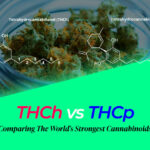
![THCP vs THC [Unraveling The Differences] thcp vs thc](https://budpop.com/wp-content/uploads/2024/06/thcp-vs-thc-150x150.jpg)
![How Long Does THCA Stay in Your System? [The Surprising Answer Revealed] how long does thca stay in your system](https://budpop.com/wp-content/uploads/2024/06/how-long-does-thca-stay-in-your-system-150x150.jpg)
![CBG vs CBN [Discover Which Cannabinoid Will Supercharge Your Life!] cbn vs cbg](https://budpop.com/wp-content/uploads/2024/11/cbn-vs-cbg-1-150x150.jpg)
![Delta 9 Near Me [Discover Local Options With Our Easy 4-Step Guide] delta 9 near me](https://budpop.com/wp-content/uploads/2024/11/delta-9-near-me-1-150x150.jpg)
![Delta 8 Near Me [Find D8 Locally in 4 Simple Steps!] delta 8 near me](https://budpop.com/wp-content/uploads/2024/11/delta-8-near-me-150x150.jpg)
